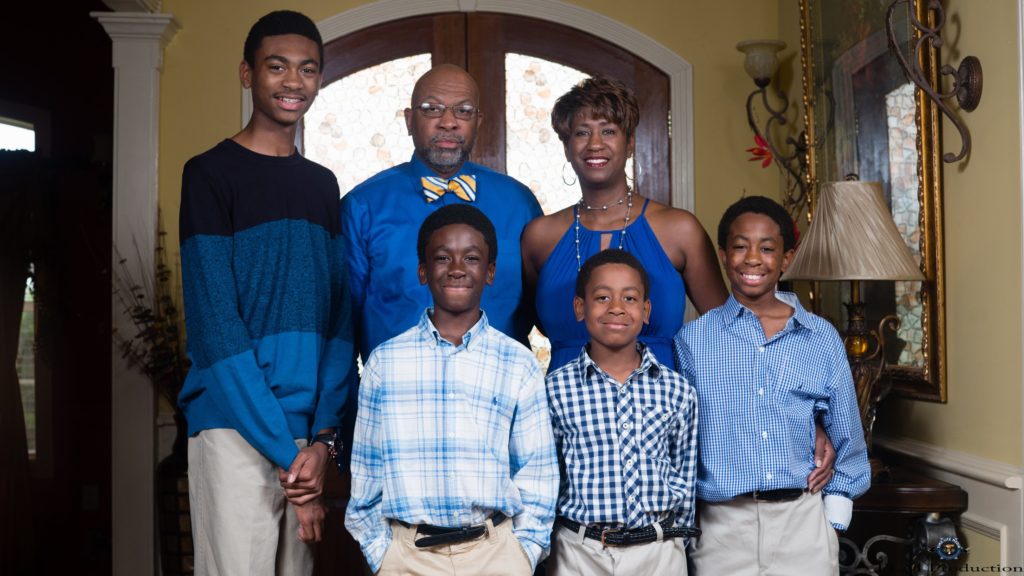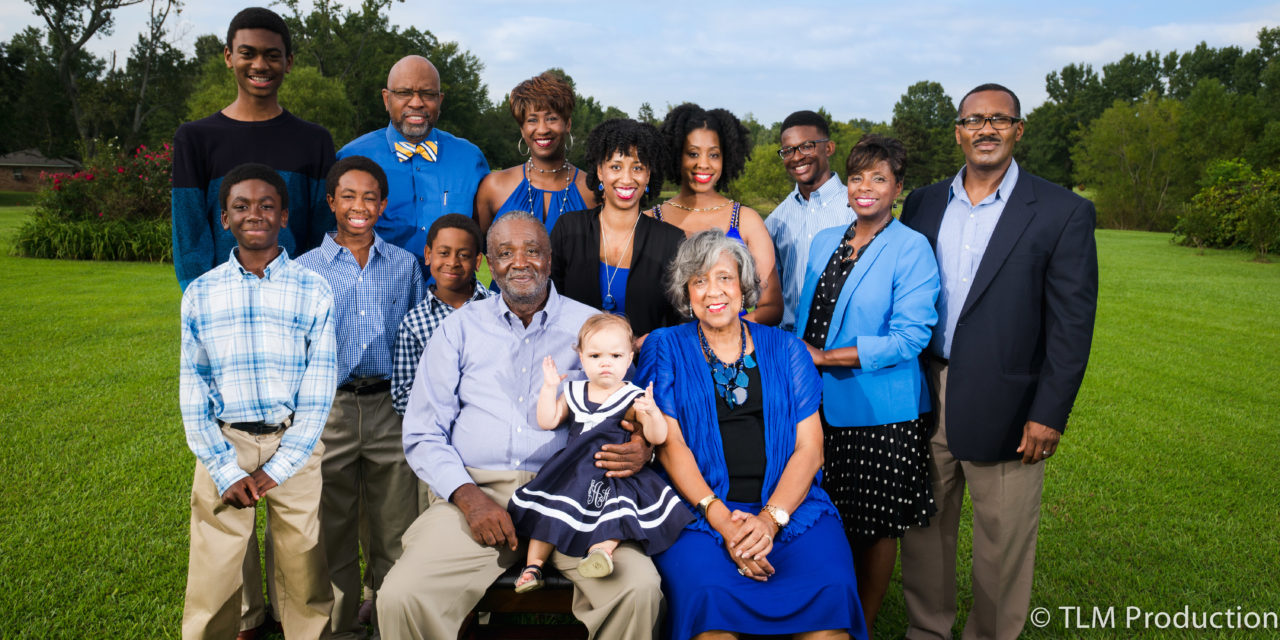An Exclusive Interview with Kym Wiggins
by Dr. Mary Shaw-Ridley
Not only is achieving a healthy work/life balance an attainable goal but workers and businesses alike see the rewards.
Kym Wiggins is an incredibly gifted life coach. She inspires, motivates, teaches, and encourages employees and the Christian community how to live healthier and happier lives from the “inside out”.
Q. Kym, mental health is such an important topic for all of us. I recently heard you deliver an incredibly stimulating Human Resources training session on the subject of “Work/Life Balance.” You held over several hundred employees of a small organization captivated through an interactive conversation about life and work. What should the HimPower readership know about the term or concept of work/life balance? What is work/life balance?
Kym Wiggins: Work/life balance is not a new term at all. Actually, it’s a term that has been around since the ‘60s. The term is generally referred to as the process of balancing work and life by allocating an equal amount of time to both. However, the term itself is a misnomer. There are three main fallacies associated with the term “work/life balance.” The first fallacy, you can’t give equal time to every part of your life equally. This is a virtual impossibility. Therefore, the goal is not necessarily achieving balance but satisfaction with our lives. Our lives are lived across a number of competing compartments – spiritual, family, finances, health, and leisure. It is about designing our lives in such a way that we are depositing something of value in each area to help us achieve life satisfaction. The second fallacy, work and life can’t be separated; therefore, they can’t be balanced. Let me ask you a question. “If you receive a pay raise at your job or if you get fired, would it impact your life?” Yes, of course. Conversely, if you become sick or suffer the loss of a loved one, would it impact your job?” Yes, most definitely. Work and life are intertwined with one another. Work is part of our multiple identities. God ordains work and expects us to live out our confessions of faith there to bring Him glory and to make disciples. The third and final fallacy is our lives are not static. Achieving balance or satisfaction is an on-going process. There will be times in our lives when we have to pour more time and energy into specific areas than others. These times may for a season be taxing and difficult; but are temporary. If we can remember this thought, then we have hope that our lives can be different and better if we can endure.
Q. You speak about it as if each of us can achieve this elusive thing. Why do you believe it is achievable?
Kym Wiggins: Each of us can certainly construct our lives to bring us greater satisfaction. It is achievable for a host of reasons. First, God says in Philippians that “we can do all things through Him” because he strengthens us. He strengthens us by giving us wisdom and direction in healthy-decision making. The real message of work-life balance is this…our lives are the sum total of every decision that we have ever made – good and bad. So, if we have made bad decisions to invest our time and talents in efforts or endeavors that don’t make us happy or satisfied, then we need to make new ones. But, if we have made healthy decisions that have resulted in a greater sense of enjoyment or satisfaction, then we need to continue that pattern. There is a leadership quote that states, “A wise man makes good choices early, and spends the rest of his life managing them.”
Q. The research confirms that employers and workers see rewards when people have work/life balance. What are some of those rewards? (Both from the employer and employee perspectives)
Kym Wiggins: Healthy work/life balance is thought to be mutually beneficial to the employee and employer. Some argue employees who embrace a healthy work/life balance feel they are more in control of their working and home life. So, the healthy balance of work and life makes for a happier employee, and a happier employee may yield increased productivity, lower absenteeism, and an overall improvement in their health. Other benefits may be greater employee loyalty and a reduction in turnover. Jeff Bezos, CEO of Amazon, was interviewed about work/life balance and he stated, if I’m happy at work, I’m better at home — a better husband and better father. And if I’m happy at home, I come into work more energized — a better employee and a better colleague.” Companies who encourage healthy work/life balance may also see benefits that extend into the marketplace. Companies with a happier workforce tend to be companies people want to work for—a benefit, which helps them attract top talent. A company that embraces the concept of healthy work/life balance for its’ employees, fosters prosperity and longevity for the company.
Q. So, how do we begin to do this thing of balancing work/life? Where does one start?
Kym Wiggins: We must start by accepting our lives – just as they exist today. Acceptance of where we are in our lives today opens the gate for us to construct the life that will bring us the most satisfaction tomorrow. That sounds so esoteric. Let me put it this way we must begin by freeing ourselves from the pressure to be PERFECT!! It is one the single greatest enemies in achieving a satisfied, balanced and content life. I can’t tell you the number of times that I thought of myself as a bad mother when I missed a baseball game. I have even lamented about what a horrible employee I was because I missed a deadline or made a mistake at work. Those negative stories informed the ways in which I evaluated myself and my life. Proverbs 23:7, “So as a man thinketh, so is he….” l believed that when I excelled at EVERYTHING, my balance was great. But the times that I met the standard of perfection for the task or obligation, my life was in shambles. I realized that I was unable to author many of my own feelings of imbalance by imposing unrealistic expectations on myself. More than that, I fought my reality by continuing to believe that I could “have it all” and “do it all.” Acceptance does not mean that we are letting ourselves off the hook for everything, but it reminds us that life can be more daunting than we ever could have imagined. It illuminates decisions made on the road to where we are so that we can make new decisions that will forge new paths toward the changes that we want to see in our lives. It also reminds us that life is “filled with swift transition.” It changes quickly and profoundly. Some of these changes may temporarily require more time and energy in new and different places. When we enter a new season of life, rather than fighting it, accept it so that we can formulate a plan to cope with it, manage it, fix it, endure it, or grow from it. The alternative is to lock ourselves in a losing battle to bend it, change it, or ignore it. That is crippling and hopeless. We create our own reality by what we think. Acceptance helps us to think more rationally and reasonably which is the pivot point.
Q. Kym… some research suggests that employers share the responsibility of helping an employee to balance his/her work/life. Is this part of your philosophy also?
Kym Wiggins: I absolutely believe that employers have a role to play in aiding employees in their quest for “the balance.” Over the years, however, I have witnessed what I believe to be employees abdicating their responsibility for attaining a satisfied, balanced life in favor of total reliance on organizational interventions. I understand now how dangerous this is for the employee. Consider this, I was reading about a company the other day that offers on-site daycare with extended hours for employees. Parents are even allowed to have lunch with their children during the workday. Doesn’t this seem like the absolute best? It does indeed seem like a noble gesture on the face. However, companies that offer on-site daycare with extended hours only encourage employees to stay at their desks longer because the “distraction” of having to leave at a certain time to pick up children has now been removed. My contention is that achieving work/life balance is an individual strategy; not an organizational one. Organizational offerings should be approached as a resource or tool for consideration in the development of our own personal work-life balance strategy. Design the life you want today – don’t wait. Because if you don’t design it for yourself, someone else will design it for you – and you just might not like their design for you.
Q. In your experience, do Christians seem to have a better grip on this work/life balance concept? Are we doing better with it than others in the American workplace?
Kym Wiggins: I believe that the teachings of Jesus Christ offer tools designed to give us a better grip on this issue. In fact, we should be the model for the world. Yet, we suffer from the same levels of exhaustion and frustration associated with managing the demands of work and family as non-Christians. Perhaps, even more, because we are also challenged to devote some dedicated time to convene in a relationship with God. The Bible, however, gives us a really good starting point for ordering our lives to achieve balance and harmony. Matthew 6:33-34 states, “But seek ye first the kingdom of God, and his righteousness, and all these things shall be added unto you.” This scripture really rallies us to change the paradigm for how we approach this issue as a Christian. We were not designed to reconcile our lives to the obligations imposed upon us by our worldly obligations. We are supposed to reconcile our lives to godly pursuits above all else. Jesus taught that every commandment hinged on our ability to love God first and our neighbor second. Our motives for what we choose to pursue in life and for how we choose to pursue them is called into question using Jesus’ standard. If through examination our motivations are found to be self-serving, then we can be assured that our work and our lives will be off kilter. We will struggle to find purpose and satisfaction in either space as Christians. We will retreat to our personal pits of despair unable to be the salt and light God expects us to be.
Q. It seems that people outside of American culture do a better job with achieving work/life balance. What are your thoughts on this and if this is true….Why is this the case?
Kym Wiggins: I am certainly no expert on foreign affairs, but I think what may be seen as a higher achievement in work/life balance by foreign cultures may be perception, not reality. We live in a global economy and more and more nations are adopting economic and political systems that mimic capitalism. The pursuit of a piece of the proverbial pie has definitely impacted the lives of the individuals who engage in those pursuits. China, which is leading world power in business growth and development, has profound struggles with work-life balance. The Wall Street Journal reported that 75% of employees in China report chronically high-stress levels associated with an improper work-life balance. This was up 30% from last year. Much like America, there are some very specific cultural norms that propagate this environment. For instance, in China, there is an unspoken rule that you must be at your work-station before your boss arrives and must stay until he leaves. Cultures are created as a result of what individuals within a group will accept. Employees in America and many other countries have endorsed cultures that don’t support healthy work/life balance by refusing to speak against it.

Q. Who is the driver of the car to achieve work/life balance? What if the work environment seems unreceptive to this extremely important health related factor?
Kym Wiggins: You must be the driver of the car to achieve work/life balance. Just as the Bible teaches we are to work out our own salvation with fear and trembling, the balance of work and life must be worked out individually. We are ultimately responsible for developing strategies and making decisions that are consistent with our desire to glorify God in life and work. After all, the whole duty of man is to glorify God. Every individual is the driver of their own car. When behind the wheel, we must trust God and He lead us onto the path of a healthy and balanced life. I am a firm believer that achieving healthy work-life balance is an individual’s responsibility. It certainly makes good business sense for employers to create work environments that support healthy balance. Yet, there are some environments or jobs that are not conducive to attaining it. This presents us with some hard decisions. Choosing the right career and work environment is a large part of achieving a successful work/life balance. Every job may not be suitable for your present circumstance. I have also found that when your performance has great yield, it makes you a valuable asset within your work environment and that environment is more likely to accommodate your needs.
Q. Kym, what were the triggers for you to begin talking about this important spiritual, social, physical, and overall well-being issue?
Kym Wiggins: I don’t know if there were specific triggers; but there was definitely a specific time that challenged me to deal personally with the issue of work/life balance. I was a Deputy Executive Director for one of the key control agencies in state government. I was routinely involved in the development of legislation and policy that governed much of state government operations. This job was marked by terribly long hours and grueling deadlines. As my career advanced, my husband and I were having babies in rapid-fire succession. We had three babies in as many years. I know what you may be thinking, and, yes, we eventually found the “off” switch. It was during this time that my personal life and work life collided! I was still working 10-12 hour workdays by relying on my husband and eager grandparents and aunts to pick up the children after school. Grabbing fast food and using my jacuzzi tub as a laundry basket became my norm. Yet, I deluded myself into thinking that if I could just get through a legislative session or roll-out the next new policy directive that then I could get back to being the best wife, mommy, worker, church member, sister, daughter, and friend EVER! I learned very quickly that was insanity. The places that I was neglecting were moving on without me, and looked very different when I returned. One morning, I went into the room to wake up my youngest son. When I reached in the crib to pick him up, he spoke in a baby language that only parents can understand… “I want my daddy!” I was HORRIFIED! It was then that I realized that I could neither have it all; nor do it all. So, I was faced with some really tough choices. Back then, I didn’t know what “work/life balance” was. I just knew that I felt like a failure most days. I was unable to “be present” for my family, life and work in a significant way. I started by identifying the things that I said that I valued the most in my life – God, family, work, and service to others. Yet, as I took stock of them, I realized that these were also the areas that I experienced the least amount of happiness in. This set me on a path of honest self-reflection. I had to admit that the places that anchored my life were the most neglected. Wow…that was really the start.
Q. How can you know when you have achieved some level of work/life balance?
Kym Wiggins: Oh, that’s pretty easy. You know that you have achieved it when you feel satisfied with where you are in your life. I like to use the word satisfied when I talk about work/life balance because I think it fits. When thinking of satisfied, I think of a great Thanksgiving meal. Thanksgiving dinners in my family are always filled with more food than should be legal in a day. From Aunt Becky’s life-altering dressing to the special order delivery of sweet potato pies from Heaven in care of my Aunt Bobbie. I meticulously and methodically select every morsel of food that I plan to feast on for that day. Yet, once I have had my fill of every dish that I wanted, I am satisfied. So, when my Aunt Bobbie offers me another piece of pie, I can say “no.” My answer is not because the pie is any less good or that I might not want another piece later, it just means at this specific time, I am full and satisfied. I encourage others to apply this same logic to life. You will know when you have achieved some level of balance when you can look at where you are in your life in all areas – faith, family, finances, health etc. and can feel satisfied by the choices that you have made. Sure, you could volunteer for a new project at work or transition to a completely vegan diet because a magazine touted the great health benefits of it. But, you have to ask yourself, will those decisions cause me to become overloaded to the point that I have to neglect the other areas of my life to accomplish them. Simply put, you will know that you have achieved some measure of success in work/life balance when you are able to say “no” to some things and “yes” to others.
Q. Can you talk about this concept from a spiritual growth perspective? How does it fit with the Christian life?
Kym Wiggins: Our spiritual growth is seen in the progressive transformation we undergo as we conform to the image of Christ. Conforming to Christ’s image is exhibited in our actions–the fruit we produce. Growth is demonstrated by our actions and our actions must be rooted in love. So, truthfully an essential component of Christianity and spiritual growth is balance. The Bible teaches we are to love the Lord God with all our heart soul and mind. Some may picture pulling away from all responsibility in order to achieve this type of devotion, but God hardly expects us to simply sit still and offer our love to him through meditation and withdrawal from society. Loving God means loving people. Jesus said in the parable of the sheep and the goats, “Whatever you did for one of the least of these brothers and sisters of mine, you did for me.” Our love is shown through our service to others. God has also ordained work in the scripture. Some may see work as a result of sin, but God told Adam to take care of the Garden before his act of disobedience. Not only has he ordained work, but God also tells us that whatever we do, do it heartily as unto the Lord; work is no exception. Christians should unquestionably be devoted to God, and our devotion is seen in how we interact with strangers, with our families, with our coworkers and when we fellowship with other Christians. The expectation for spiritual growth is not to focus on one of these characteristics but to add them in equal measure–a balanced approach.
Q. What was your career path prior to becoming a Life Coach?
Kym Wiggins: I began my career as a Community Development Consultant working with local municipalities and non-profits to develop grant applications for public and private funding. Later, I accepted an appointment as Communications Director for a large government agency in my home state of Mississippi. I served in that capacity until I was asked to serve as a Deputy Executive Director of that same agency. Also, as a fun fact…I was a District Trainer and Manager for Victoria’s Secret for a brief stint. Sadly, I never learned her secret!
Q. How does a Christian balance the demands of family, work, church service, and play time? What does your work/life balance look like and feel like?
Kym Wiggins: Christians must be especially diligent about maintaining a healthy balance in life. We not only experience burnout in our jobs but in church and ministry. Jesus’ ministry was paramount, yet he found time to rest and enjoy the company of his disciples. I think we often confuse love with labor. God is interested in a relationship, and we can hardly have a healthy relationship with God, our families, and friends if we are busy serving on every ministry, taking on every benevolence case, and accepting every request. Christians can say ‘No.’ Every leadership position, ministry opportunity, and good deed is not meant to be accomplished by one individual. Jesus came that we have life abundantly, and abundant living is filled with a balance of the many blessings and joys God gives us each day. Achieving the balance looks different for me from month-to-month, year-to-year, sometimes even day-to-day. My life, like everyone, is filled with the stuff that I “gotta do” and the stuff that I “wanna do.” My personal goal is to make sure that I don’t devote all of my time to the “gotta do” stuff to the neglect of the “wanna do” stuff. My boys recently headed back to school after the summer break. I have to admit, I love the summer break almost as much as my kids. No early wake-ups and no homework to remind me of how long it has been since I was school. I had grown accustomed to staying up late with the kids binging on Netflix series and eating junk. I’m always amazed at how quickly behaviors become habit – good and bad. I told myself that it was my special way to bond with my teenage boys who are quickly moving into that stage where it’s not cool to hang out with Mom. There was only one problem with this new ritual. My boys were able to sleep late in the morning while I was up and out by 8:00 A.M. each morning. I was exhausted from the late night and sluggish from the mad junk food binges. I didn’t want to stop being the “cool” mom, but I could barely function during the day. Something had to change. So, I pared my nights down from five to two for the rest of the summer. I and the boys still looked forward to those nights, but I got the rest I needed so that I could continue to meet all of my other obligations. This is a simple example to illustrate the idea that quite often very small decisions shape our personal design of work/life balance. The ones that make life more satisfying are often small and less intimidating. Yet, they give us forward momentum that helps us to create a balance uniquely tailored to our individual lives.
Q. Listening to you in the seminar, it seems that you have achieved what many of Christians and non-Christians desire–to attain some level of work/life balance. Are you there? If so, how did you personally attain it? Is there an endpoint or is it something you work at daily?
Kym Wiggins: Wow! Am I there? I am as satisfied as I can be considering the current construct of my life. As I mentioned in my most recent training session, it is not wise to gauge your level of balance or imbalance by just looking at a slice of time in your life. Yet, I have some tools now that help me to stay on the “straight and narrow.” I am a wife of 23 years, mother to four boys, business owner, Sunday school teacher, daughter, sister, friend, and student of life. I still have to keep lots of plates spinning. I am also a little bit addicted to chaos. So, I anticipate that my life will always be full! However, I am definitely much more intentional about the choices I make to maintain a healthy level or balance in my life. Each day I take a mental inventory of everything that either I have to do on that day and what I would like to do. Every single item on my list has a decision associated with it. For instance, who will I have lunch with today, or do I even have time for lunch? I take great pains to make decisions that support my core values. Sometimes it’s difficult. Sometimes it has even hurt feelings. Most times there have been people who wanted me to make a different decision for their sake or benefit. All the time, however, I remind myself that it is my decision to make not anyone else. I also remind myself that these are not good or bad choices by any standard other than what honors and glorifies God–and what nourishes me. Daily, I am honest about what I can do and what I can’t. Daily, I am vigilant to seek God’s direction for when to say “no” and for when to say “yes.” Lastly, I forgive myself daily for the decisions that I make that aren’t always in my best interest. So, as you can see there is no endpoint to this work. The struggle is real and continues.
Q. And finally, can you outline some action steps to help our HimPower readers get started, get moving, or even keep going to attain work/life balance?
Kym Wiggins: First, align your values with your reality. Make a list of the things that you value the most i.e. God, Family, etc. On a scale of 1 to 10, with 10 being the highest, assess how satisfied are you in those areas. Select the three areas in which you have the lowest satisfaction and list the reasons you are dissatisfied. Next, create your action plan for change. Identify one small change or an action that will help to increase your satisfaction level for each of the three areas. Identify the barriers to that change or action and develop a solution to overcome each barrier. The third step is to build forward momentum. Each day, say “no” to one thing that keeps you stuck in old routines or patterns. Then, once a week, say “yes” to something that moves you closer to the better version of yourself – even if it scares you! Finally, see God’s direction at all times.
Q. Is there a favorite scripture that you wish to share that guides you in this important area of physical, spiritual and emotional, and social well-being?
Kym Wiggins: Psalms 90:12 (TLB) “Teach us to number our days and recognize how few they are; help us to spend them as we should.” In this passage, Moses was meditating on the greatness and eternality of God. In doing this, he was reminded of his own brevity and frailty. The sentiment is simple. Equip me with the knowledge and direction to make my life count for God. We are all created for his glory–and there is no purpose, joy, contentment or satisfaction beyond that. The Lord replied, “My presence will go with you, and I will give you rest.” – Exodus 33:14 (NLT)
Shaw-Ridley: Kym, thank you for taking time out of your busy schedule to share with the HimPower Family. We know that failure to achieve some level of work/life balance will ultimately impact every aspect of our Christian life journey. A daily dose of Proverbs might be a good prescription for each of us.
Kym Wiggins facilitates personal and professional development training sessions designed to produce highly successful leaders. She owns a professional development consulting firm, Intrepidus LLC based in Clinton, MS. A teacher at heart, she focuses on connecting people to their individual mission and purpose.





